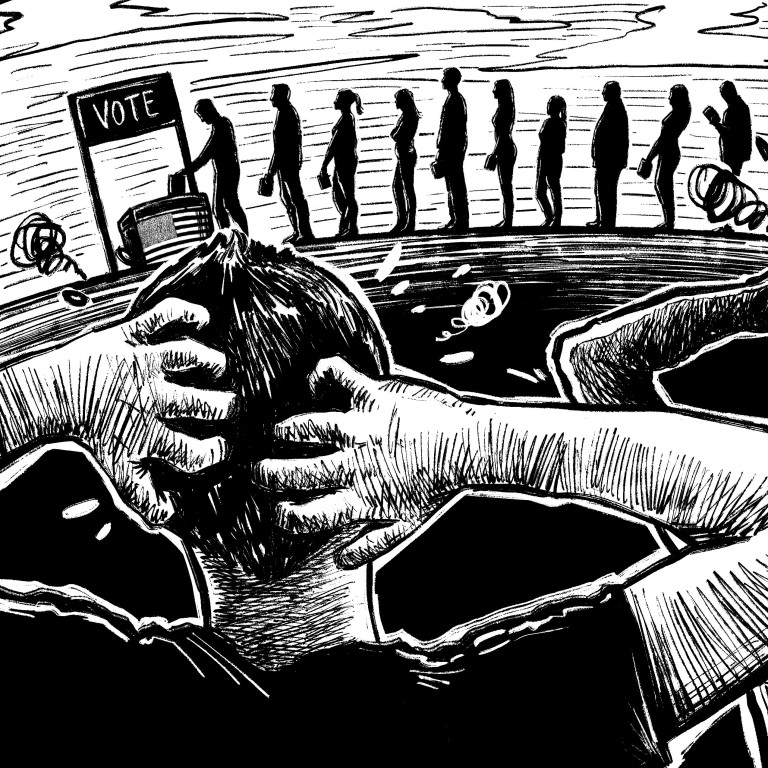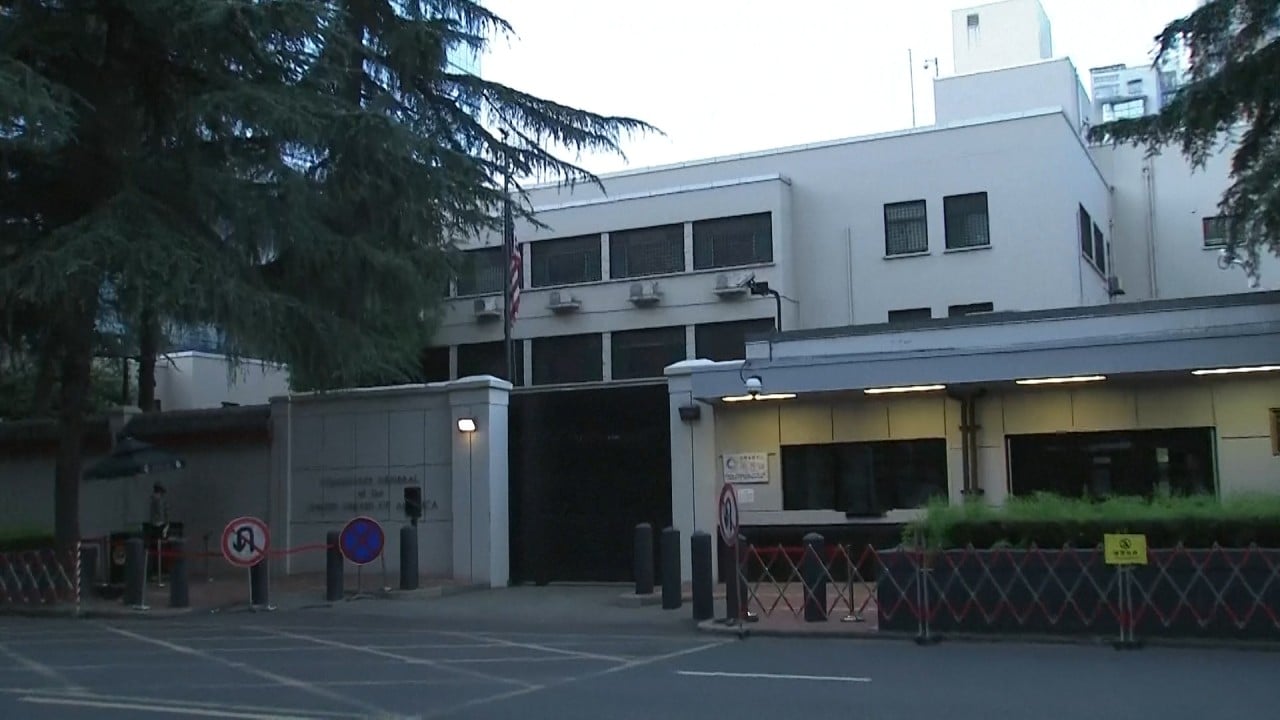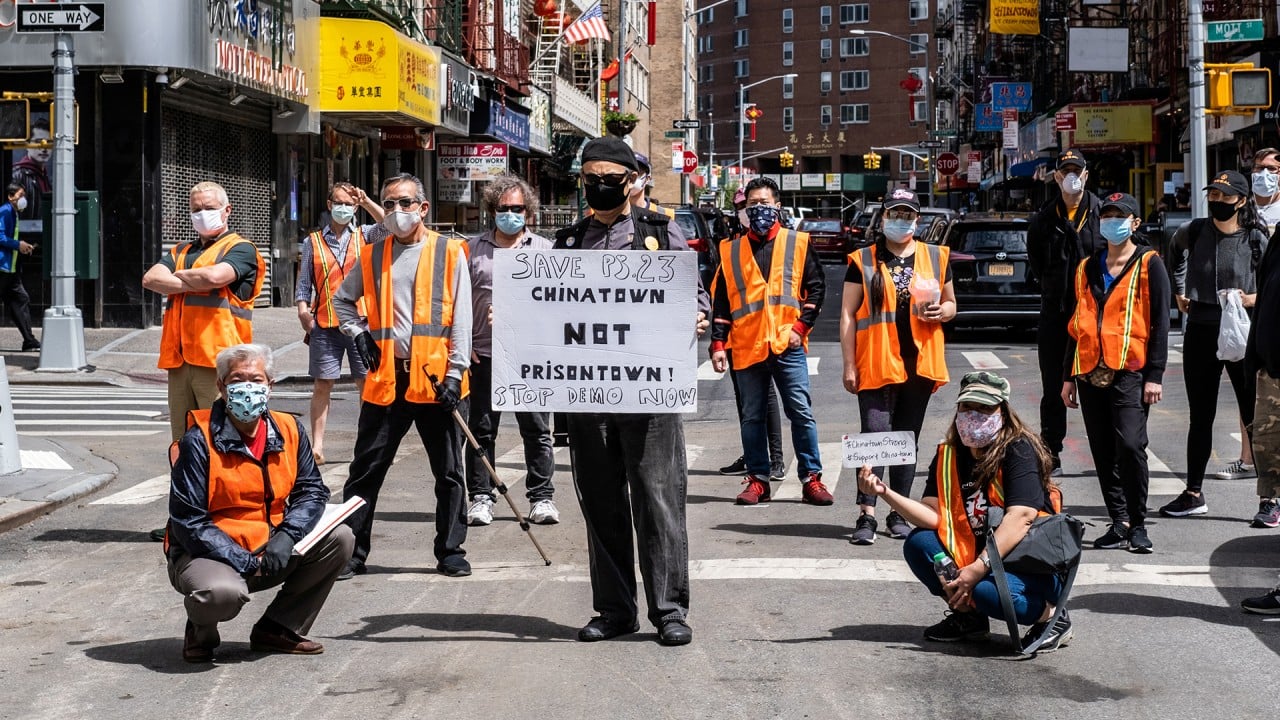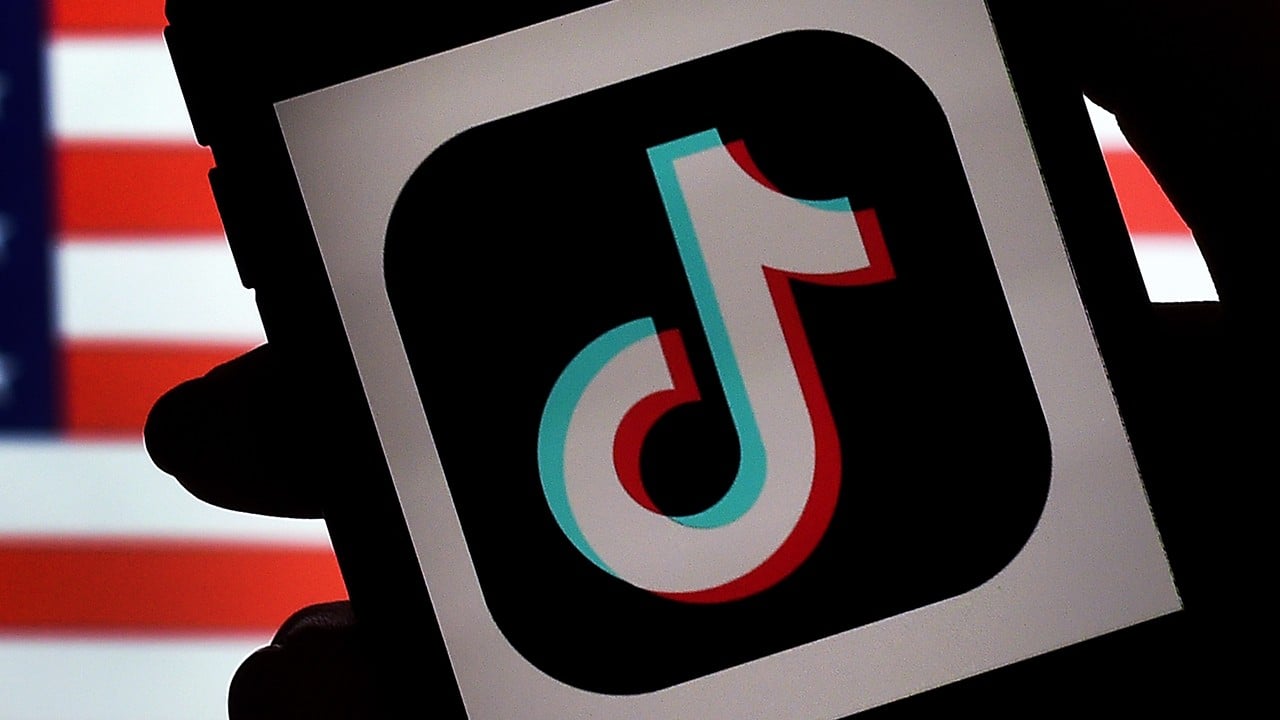
To those affected by US-China relations, this election is a nail-biter
- People who cannot vote but whose lives have changed because of White House policies are watching the race closely
- But few believe a Biden victory would mean a complete reversal in anti-China sentiment
As voters in the United States prepare for the presidential election on November 3, the South China Morning Post is exploring the potential ramifications for China. The 10th part in the series looks at the race through the eyes of non-US citizens directly affected by deteriorating US-China relations. Read the entire series here.
But as the electorate prepares to choose whether to re-elect or shun an incumbent who has pledged to put “America first” and embraced isolationism over globalisation, the race is also being closely watched by non-voting stakeholders the world over. And few are watching more closely than those whose lives and livelihoods are wrapped up in the US-China relationship.
Ranging from sanctions against Chinese officials over human rights abuses and their handling of Hong Kong, to stand-offs over Chinese tech companies and restrictions against diplomats, a seemingly endless cascade of actions in recent weeks has seen bilateral relations fray to their most precarious in decades.
US Secretary of State says world increasingly regards China as a threat
“Trump does have this scorched-earth policy in terms of the US-China relationship,” said Du Chen, a Chinese tech reporter currently stuck in Beijing who is trying to return to California’s Silicon Valley, where he lived and worked before the coronavirus pandemic.
“It’s like he’s trying to burn all the bridges down and I’m not sure if all of those bridges are going to be repairable,” said the 31-year-old, who writes for PingWest, a private Chinese website covering tech news.
Du had a front-row seat for the burning of one particular bridge in July, when China ordered the US to close its Chengdu consulate, in retaliation for Washington’s move against Beijing’s consulate in Houston over allegations that its diplomats were facilitating espionage.

01:27
US consulate in Chengdu shut down in response to closure of China’s diplomatic mission in Houston
The closure of the Chengdu mission dashed his hopes for a visa application interview. He had secured an appointment there after failing to find an opening at any other US diplomatic outpost, many of which had scaled down consular services during the pandemic.
Since then, Du has been unable to book another appointment elsewhere. “My estimate is that I probably won’t be able to get back to the US until maybe the first or second quarter of 2021,” he said. “I just don’t know. There’s just too much uncertainty for me.”
For Du, the extraordinary tit-for-tat consulate closures were a sign of things to come under a prospective second Trump administration. He would prefer a presidency with more “consistency” – “Of course that means Biden and Kamala Harris,” he said.
“The situation was already bad enough. And if Trump does get a second term, I do think he will continue to go down this path, because it’s one of the few ways that he can still get support from his base.”
US limits on international visas leave Chinese students unnerved
Indeed, while foreign policy tends not to feature prominently in US presidential races, the run-up to this election has seen the incumbent’s campaign increasingly target China, which he has accused of “unleashing” the coronavirus on the world.
Trump also routinely claims that China would “own” the US if Biden were elected – a reference to a baseless claim that the former vice-president would be beholden to the Chinese government because of his son’s former business dealings in the country.
Yet, while Trump’s own rhetoric against Beijing has been largely political and ill-defined, actions by his administration countering China have continued apace.
Even if Du is able to return to the US, his professional and personal life would be subject to new uncertainties in the wake of one such action: visa restrictions on Chinese journalists limiting their stay in the US to 90 days, with the possibility of renewal.
Chinese journalists’ lives disrupted by new US visa restrictions
Video journalist Zhang is experiencing the new limitations first-hand. The 24-year-old, who works for a major news outlet in Washington, asked for her first name to be withheld to avoid complicating future visa extension applications.
The limits, which were rolled out in May and apply to all Chinese nationals, whether they work for Chinese state-affiliated media – Zhang does not – had left her feeling her presence in the US was not “appreciated”. She said the need to apply for a renewal every three months felt akin to “implicitly begging for the country to keep me here”.
The Trump administration has justified the policy as a response to the treatment of American correspondents in China, which expelled a number of journalists earlier this year. To critics, though, the new regulations typify a willingness by Washington to engage in an unwinnable race to the bottom with Beijing.
For her part, Zhang is hopeful that many of Trump’s anti-globalisation policies will be reversed by future administrations: “I made peace with my own anxiety, that Trump will be temporary.”

03:41
Asian-Americans, harassed over coronavirus, push back on streets and social media
But both she and Du were sceptical that a prospective Biden administration would make the welfare of Chinese journalists in the US an immediate priority.
“I wouldn’t expect [a Biden administration] to be able to spend their time and energy working on salvaging this situation for a community that is very, very little: an almost invisible community of Chinese journalists in the US,” Du said.
Indeed, faced with a hawkish opponent as well as a Congress that has united in recent years around countering China, Biden has recently toughened his own stance on Beijing, pledging to rally US allies to exert joint pressure on the trade front, and speaking out in explicit terms about what he called China’s “genocide” of ethnic minority groups in the country’s northwest.

06:04
US-China relations: Joe Biden would approach China with more ‘regularity and normality’
“I think [the] US-China relationship will get better and more predictable once Joe Biden gets elected, but at the same time, I think the general confrontation won’t change much,” said Fang Tianyu, a Stanford freshman who is taking virtual classes after returning to China during the pandemic.
“I don’t think the good old days of US-China engagement will necessarily come back,” said the 19-year-old, who has studied in the US since high school. “But I think as long as policies are more predictable, there will be less collateral damage in this whole environment.”
As a Chinese student at an American educational institution, Fang belongs to a group that, like Chinese journalists, has become the target of intensifying scrutiny by the Trump administration.
Under the orders of Trump – who has privately complained that “almost every student” from China is a “spy” according to reporting by Politico – the US state department this summer began revoking the visas of any Chinese graduate student deemed to have ties to China’s military schools.
US Senate Democrats announce US$350 billion plan to confront China
As of September 8, the state department had revoked the visas of more than 1,000 such individuals, describing them as “high-risk” and furthering the “Chinese Communist Party’s goals of military dominance”.
Some institutions have also taken matters into their own hands, with the University of North Texas recently moving to sever ties with researchers funded by the government-backed Chinese Scholarship Council.
Hawks on Capitol Hill, meanwhile, have called for even harsher limits on Chinese students, including calls to bar them from science and technology-related majors.
Should Trump secure a second term, students should brace for more of the same, said Huang Liqin, an undergraduate student attending a California university and one of around 360,000 Chinese students enrolled at American universities.
“We’d better prepare for potential discrimination [if Trump gets re-elected],” said the 21-year-old junior. “Some of the conservatives will see us as enemies or spies from another nation.”
While not a “great fan” of Biden’s, Huang worried that Trump would continue to target China as the US economy worsened due to fallout from the coronavirus pandemic.
Huang travelled to the US to study law because, he said, China’s legal system was in need of reform. He had planned to train as an intellectual property lawyer but was disillusioned by the Trump administration’s efforts to force a sale of Chinese-owned short video app TikTok.
To Huang, the move against TikTok was more grounded in politics than in law. “It makes me feel unconfident about the current political situation,” he said.

01:46
Oracle reaches deal to become TikTok’s ‘technology partner’, after Microsoft offer is rejected
Also on the minds of many who are closely watching the election is the role of political discourse in fuelling anti-Chinese xenophobia.
“I think lots of Americans see us as threats,” said Huang, who experienced racist harassment in the US before the reported rise in incidents sparked by the coronavirus. He recalled being racially abused and told to “go back to China” by a group of people in Chicago two years ago.
Trump – who is again running on an openly anti-immigration platform – has abandoned his original term for Covid-19 as the “Chinese virus” amid criticism it was fuelling anti-Asian racism. He has since adopted other terms such as “China virus”, “China plague”, and even “Kung flu” to take its place.
Rights groups say such language from the highest office in the country continues to embolden xenophobic attacks against Asians in the US. Stop AAPI Hate, which tracks discrimination against Asian-Americans and Pacific Islanders (AAPI), has logged more than 2,500 incident reports since launching in March.
No more ‘China virus’: US lawmakers denounce anti-Asian pandemic rhetoric
“Donald Trump plays on racism,” Fang said, explaining it was one of the reasons he was rooting for Biden. “That is not going to help anyone. It’s not going to help Chinese-Americans or US-China relations in general.”
As for Zhang, the video journalist, while a second Trump term carried the prospect of a further deterioration in bilateral relations and a continuation of anti-Chinese rhetoric, it would not necessarily accelerate her plans to return to China, she said.
“If I’m still very passionate about journalism in a year or two years, I think it [would be] a great time to be in the US, because I don’t think journalists want to be living in Utopia. This is the time we need journalists the most.”
She added with a laugh: “But also, it depends on how reckless Trump can be if he gets a second presidency.”
The other reports in the US election series can be found here.












